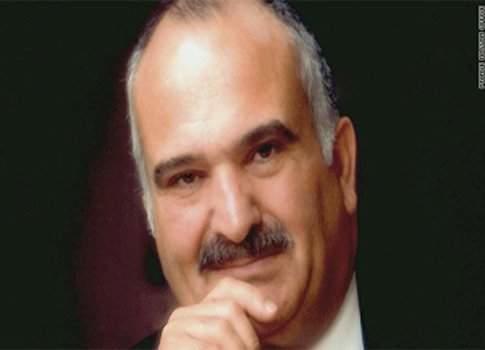Beirut’s bold step reinforced tolerance

In 2010 the Lebanese government took a bold and innovative step in the name of national unity, social cohesion and tolerance among peoples.
The government marked a national holiday to celebrate the Annunciation – a commemoration of the moment when the Archangel Gabriel revealed to the Virgin Mary that she would become the mother of Jesus. While traditionally understood as a Christian festivity, in Lebanon the Annunciation is an interfaith holiday. It is a space and opportunity carved out for two communities to bond over common ground – an event that highlights the shared milestones and people that shaped the evolution of the Abrahamic religions.
To be sure, deliberate effort was needed to elucidate this space. For most people – religious or otherwise – the centrality of the Virgin Mary in the Christian faith is broadly understood. Her symbolic importance in Islam, however, is less obvious. Few Muslims, and even fewer Christians, are aware that Mary is the only female name mentioned in the Quran, and that her name appears no less than 34 times – more references than to the Prophet Mohammad (peace be upon him) and Jesus’ names combined. Moreover, it was Sheikh Mohammad Nokkari, a Sunni, who inspired the idea that Muslims join Christians to celebrate the Annunciation. It was one small step toward his dream of seeing Muslims and Christians praying together, celebrating their faiths in peace and harmony.
That such a fostering of inter-community relations evolved in a country as religiously complex as Lebanon demonstrates the importance of interfaith dialogue in forging unity and social cohesion. First, the holiday is a tangible means of making interfaith dialogue accessible to everyone, taking it out of the hands of scholars and the realms of theology, and vesting responsibility in all people of faith.
Such inclusion is key to understanding the significance of the Annunciation; it was a common woman, not someone of nobility, who received the Archangel Gabriel’s message. One might interpret the archangel as announcing that women and their faith – so modest and humble, yet rich in determination and open to life – represent our greatest opportunities for a richer and more peaceful future.
Second, as two communities celebrate, a happy paradox is emerging on the streets of Lebanon – one that might serve as a lesson for the entire region. For a change, religion is being used proactively and by everyday citizens, as a modality to unify and unite, rather than to divide and separate. Celebrating religion as a means of fostering human dignity and dialogue among peoples is the antithesis of faith being conjoined with blind fanaticism for violent purposes. True faith does not condemn other faiths. It cannot be a dark judgement of what is different or misunderstood. Faith is principally joyful and festive; a means to bring people together through a common commitment to mutual respect, forgiveness and tolerance.
Finally, such events provoke thought on how issues of faith connect to existential issues of civic values and cohesion. The conflicts engulfing the region today reveal an identity fragmentation that has been present in West Asia and North Africa for centuries. Such fragmentation has been exacerbated by escalating animosity, driven by inequalities across ethnic, national, sectarian and religious lines, as well as social status and class.
As the death toll and human suffering continues to rise, it is increasingly clear that negotiation, not bombs, is the solution. The alternative is that the last century of fighting and peace conferences has taught us nothing. The people of the region must commit to end the war on humanity by waging peace and befriending our differences. Interfaith dialogue might constitute the foundation of a new regional architecture, where human dignity is the national interest, and cooperation is preferred over conflict and ideological difference.
In Lebanon’s interfaith Annunciation, I see the seeds of what the future may hold, if only they find the right ground in which to grow. Certainly, only by focusing on human dignity and enabling people to live their lives with self-respect, will stable countries and peaceful regions evolve.
His Holiness Pope Francis recently stated that we must find again the “courage to dream.” Sheikh Nokkari is an example of the power of dreams and how much they can achieve. Lebanon, amidst its political instability and economic fragility, demonstrates this vividly. Perhaps other countries in the West Asia North Africa region may dare to dream too.
THE DAILY STAR




